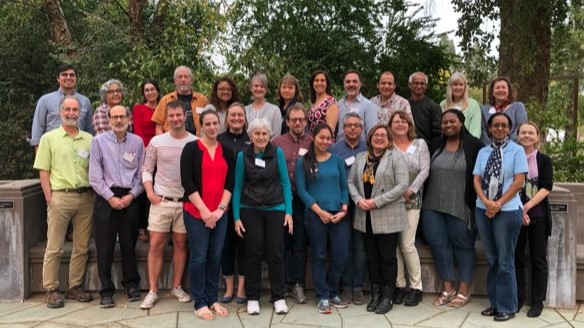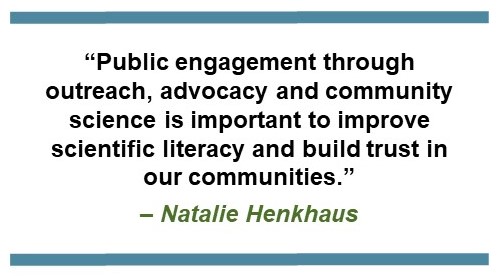News
New Guide for Plant Scientists to Reenvision Outreach

A group of 30 scientists have published a guide for students and early career plant scientists interested in developing effective outreach, in hopes of engaging more talent into the field.
Advances in plant science are becoming increasingly important to feed the world while minimizing harm to the environment, but there aren’t enough students interested in the field to keep up with the need. To combat this trend, a group of 30 scientists have published a guide for students and early career plant scientists interested in developing effective outreach, in hopes of engaging more talent into the field.
Published in Plant Direct on April 14, the guide explains that a booming global population and changing climate are on track to negatively impact food security and exacerbate the harm that agriculture causes to the environment. Plant science advances will be needed to increase crop productivity and nutritional quality of food, while minimizing the use of water and fertilizer.
However, over the past two decades, plant science doctoral degrees have remained stagnant as those in biomedical fields have grown at unsustainable rates, even as projections estimate a 4.12% annual increase in soil and plant scientist jobs.
Natalie Henkhaus, BTI’s Education and Outreach Program Manager, says that increased outreach by plant scientists could help attract more students to the field and improve connections among researchers.
“Public engagement through outreach, advocacy and community science is important to improve scientific literacy and build trust in our communities,” says Henkhaus, who co-authored the guide. “This outreach helps get students excited about plant science when they are young, so that they want to become plant scientists themselves.”
Henkhaus and Delanie Sickler, BTI’s Education and Outreach Director, lead the Institute’s community outreach efforts including course development for K-12 teachers, high school and undergrad research internships, and community programs. BTI engages in community building efforts to change the climate around education and outreach through its leadership with the Plant Science Research Network and community partners.
 “Removing barriers and inspiring undergrads and early career researchers to participate in outreach early on is crucial to successfully engaging the public.” says Sickler. “This guide is an inspiring read for anyone new to developing outreach programs and for those who hope to reach broader populations with their existing efforts.”
“Removing barriers and inspiring undergrads and early career researchers to participate in outreach early on is crucial to successfully engaging the public.” says Sickler. “This guide is an inspiring read for anyone new to developing outreach programs and for those who hope to reach broader populations with their existing efforts.”
The report includes eight actions that researchers can take to improve outreach in their community. Suggestions include integrating outreach into university curricula, engaging with local community collaborators, and normalizing outreach by discussing projects during research presentations at national conferences.
The report, entitled “Broadening the impact of plant science through innovative, integrative, and inclusive outreach,” was funded by the National Science Foundation (NSF-RCN 151880) to support Arabidopsis Research and Training for the 21st century (ART-21).
Co-authors include researchers from UC Davis, University of Massachusetts Boston, Science Communication Lab, NC State University, Iowa State University, Howard University, Danforth Plant Science Center, University of Arizona, University of Washington in St. Louis, California State University, UC Berkeley, American Society of Plant Biologists, Spelman College, UC Los Angeles, and University of Wisconsin.
The Plant Science Research Network is a global community network of plant scientists, which recently released a visionary report to guide investments and research into plant science over the next 10 years.


